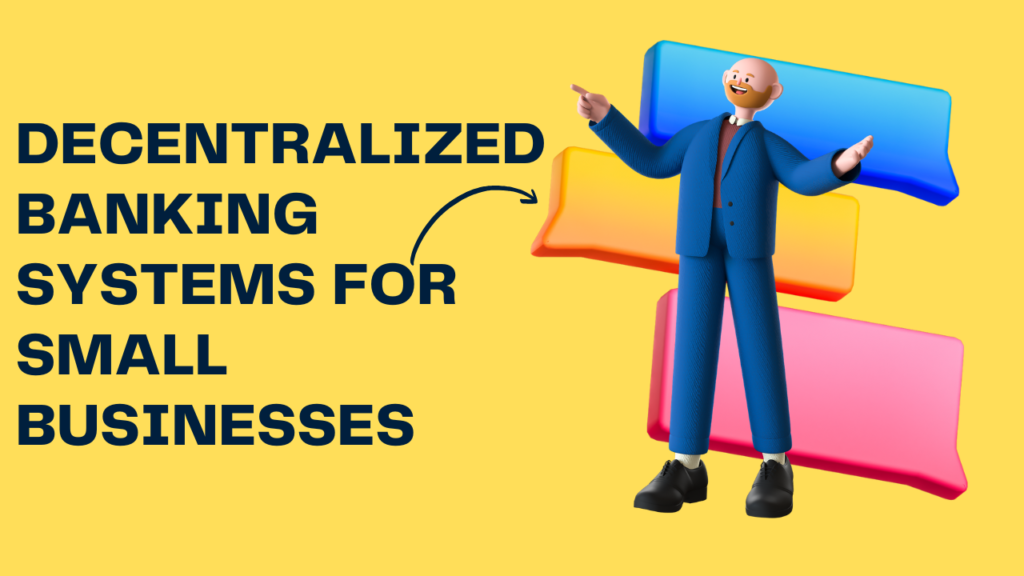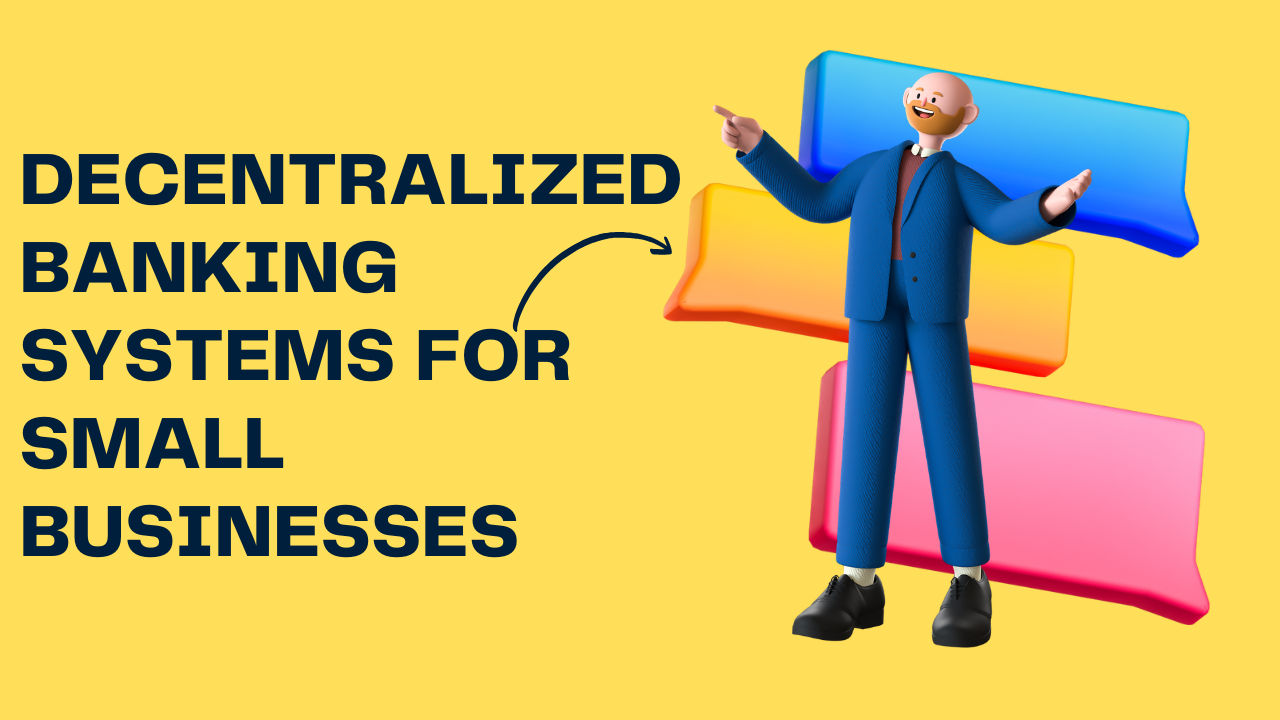
As small businesses strive to stay competitive in an increasingly digital world, decentralized banking systems are emerging as a game-changer. Offering greater transparency, reduced costs, and financial independence, decentralized banking systems for small businesses are reshaping how entrepreneurs manage their finances.
In this article, we’ll explore what decentralized banking is, its benefits, and how small businesses can adopt it to unlock new opportunities.
What Are Decentralized Banking Systems?
Decentralized banking systems operate on blockchain technology, removing traditional banks as intermediaries. These systems use peer-to-peer networks to manage transactions, offering faster and more secure financial operations.
Key features of decentralized banking systems include:
- Transparency: Every transaction is recorded on a public ledger.
- Security: Advanced encryption and blockchain technology prevent fraud.
- Autonomy: Small businesses retain full control over their financial assets.
Why Small Businesses Need Decentralized Banking Systems
Traditional banking systems often involve high fees, lengthy processing times, and limited access to credit. For small businesses, these challenges can be significant barriers. Decentralized banking systems provide solutions through:
1. Lower Transaction Costs
By eliminating intermediaries, businesses save on transaction fees, making cross-border payments more affordable.
2. Faster Transactions
Unlike traditional banks, which can take days to process payments, decentralized systems enable near-instantaneous transfers.
3. Access to Global Markets
Decentralized banking systems operate without borders, allowing small businesses to transact with international clients effortlessly.
4. Improved Security
With blockchain encryption, sensitive financial data is protected, reducing the risk of fraud and cyberattacks.
5. Financial Inclusion
Small businesses in underserved regions can access decentralized financial tools, bypassing traditional banking hurdles.
Applications of Decentralized Banking Systems for Small Businesses
Decentralized banking systems offer a range of tools and applications tailored to the needs of small businesses:
1. Decentralized Finance (DeFi) Platforms
DeFi platforms like Aave and MakerDAO provide small businesses with:
- Access to loans without credit checks.
- Yield farming opportunities for growing capital.
- Smart contracts for secure, automated transactions.
2. Cryptocurrency Payments
Accepting cryptocurrency as payment allows businesses to expand their customer base and reduce payment processing fees. Popular options include Bitcoin, Ethereum, and stablecoins like USDC.
3. Peer-to-Peer Lending
Businesses can borrow directly from investors through decentralized platforms, avoiding traditional bank loans with high-interest rates.
4. Payroll Management
Decentralized systems enable small businesses to pay employees in cryptocurrency, offering flexibility and cutting costs associated with traditional payroll services.
Challenges of Decentralized Banking Systems
While the benefits are significant, adopting decentralized banking systems also comes with challenges:
- Learning Curve: Small business owners may need time to understand blockchain technology and its applications.
- Volatility: Cryptocurrencies can be volatile, posing risks for businesses using them for daily transactions.
- Regulatory Uncertainty: Laws governing decentralized systems vary by region and can change rapidly.
Steps to Adopt Decentralized Banking Systems
If you’re ready to explore decentralized banking systems for small businesses, follow these steps:
- Educate Yourself
Learn the basics of blockchain technology, cryptocurrencies, and decentralized finance. - Choose a Reliable Platform
Select trustworthy platforms like Ethereum, Solana, or Binance Smart Chain for your financial needs. - Start Small
Begin with simple applications, like accepting cryptocurrency payments or using a DeFi lending platform. - Seek Professional Advice
Consult with blockchain experts or financial advisors to ensure compliance with local regulations. - Monitor and Adapt
Stay updated on technological advancements and regulatory changes to maximize the benefits of decentralized banking.
The Future of Decentralized Banking for Small Businesses
As blockchain technology evolves, decentralized banking systems are poised to become even more accessible and efficient. Innovations like tokenized assets, decentralized insurance, and blockchain-based supply chains will further enhance the financial independence of small businesses.
Adopting these systems today positions small businesses at the forefront of a financial revolution, empowering them to compete globally while maintaining control over their resources.
Final Thoughts
The rise of decentralized banking systems for small businesses offers unparalleled opportunities for financial growth and autonomy. By embracing this innovative technology, small businesses can reduce costs, enhance security, and unlock global markets.
If you’re ready to take control of your financial future, consider exploring decentralized banking solutions today. The future is decentralized—don’t get left behind!


